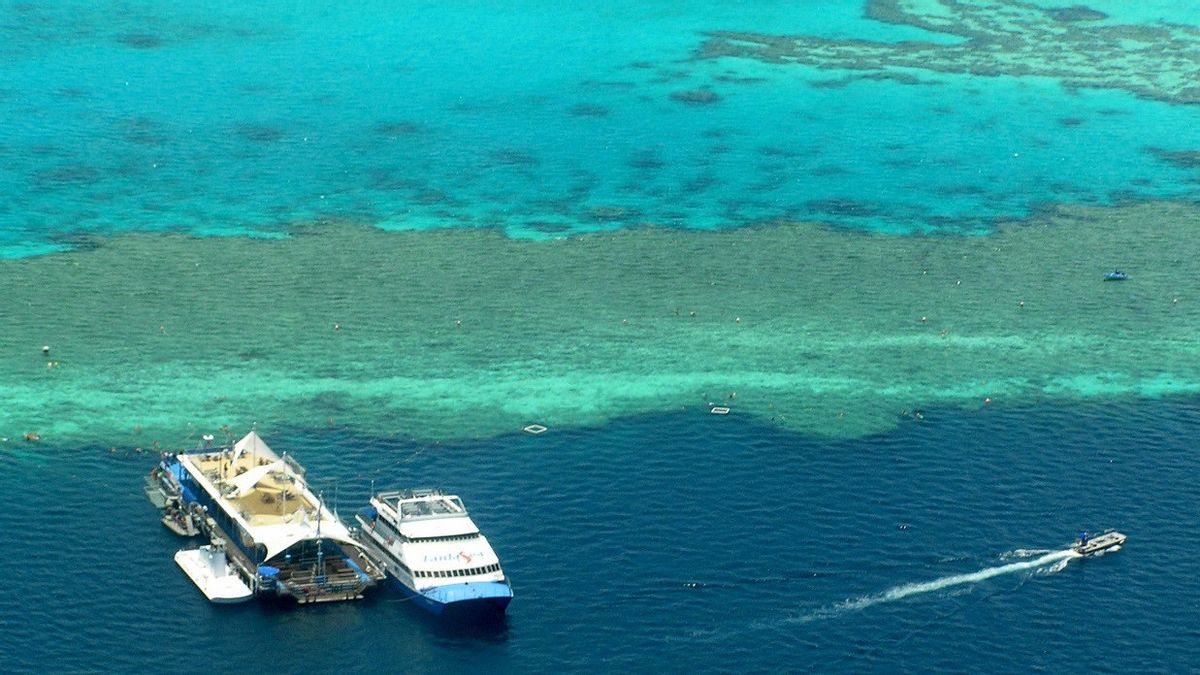JAKARTA - Australia's Great Barrier Reef must be listed as a "in danger" world heritage site, a UN panel recommended on Tuesday, saying the world's largest coral reef ecosystem is significantly affected by climate change and ocean warming.
bleaching events that often threaten coral reefs, including four times in the last seven years and the first during the La Nina phenomenon, which usually carries cooler temperatures, this year.
Solution occurs when too much water warms, causing corals to emit colorful algas that live on their networks and become white.
Karang is a 'rooted' sessile animal on the seabed. They can survive the bleaching event, but can inhibit their growth and affect reproduction.
"Resilience (grows) to recover from the impact of climate change is substantially compromised," said a report by scientists from the United Nations Educational, Scientific and Cultural Organization (UNESCO), visiting coral reefs in March.
The report is expected to be released ahead of a UNESCO world heritage committee meeting scheduled to be held in Russia, but is postponed due to war in Ukraine. The date for the next meeting has not yet been decided.
While efforts to tackle climate change have increased recently, particularly research on coral restoration, "very urgent" is needed to save coral reefs, the report said.
Meanwhile, Canberra has lobbied for years to keep coral reefs, which accounts for A$6.4 billion to the economy, from a endangered list as it could lead to a loss of inheritance status, reducing its appeal to tourists.
Prior to COVID-19, about 2 million tourists visited the coral reef located off Australia's northeastern coast every year, official data showed, providing jobs for 64,000 people.
Last year, Australia avoided a list of dangerous coral reefs, after a massive lobby by the previous government caused UNESCO to delay decisions until this year.
Meanwhile, Environment Minister Tanya Plibersek said the government would encourage UNESCO not to list coral reefs as endangered as climate change threatens all coral reefs around the world.
"We will clearly show UNESCO, there is no need to choose Great Barrier Reef in this way," Plibersek said at a press conference.
"The reason that UNESCO has in the past chosen a risky place is, because they want to see greater government investments or larger government actions and since the change of government, both things have happened," he explained.
Separately, the newly elected Government of Australian Labor Party has pledged to spend $ 1.2 billion in the years to protect coral reefs. Parliament in September passed a law for net zero emissions by 2050.
The Great Barrier Reef independent foundation said it was aware of a series of threats identified in the UN report, but recommendations to add coral reefs to the endangered list were too early.
"The Great Barrier Reef is a miracle, he gets his challenge, but he is definitely not at his last leg in any way," Managing Director Anna Marsden told Reuters.
The English, Chinese, Japanese, Arabic, and French versions are automatically generated by the AI. So there may still be inaccuracies in translating, please always see Indonesian as our main language. (system supported by DigitalSiber.id)








